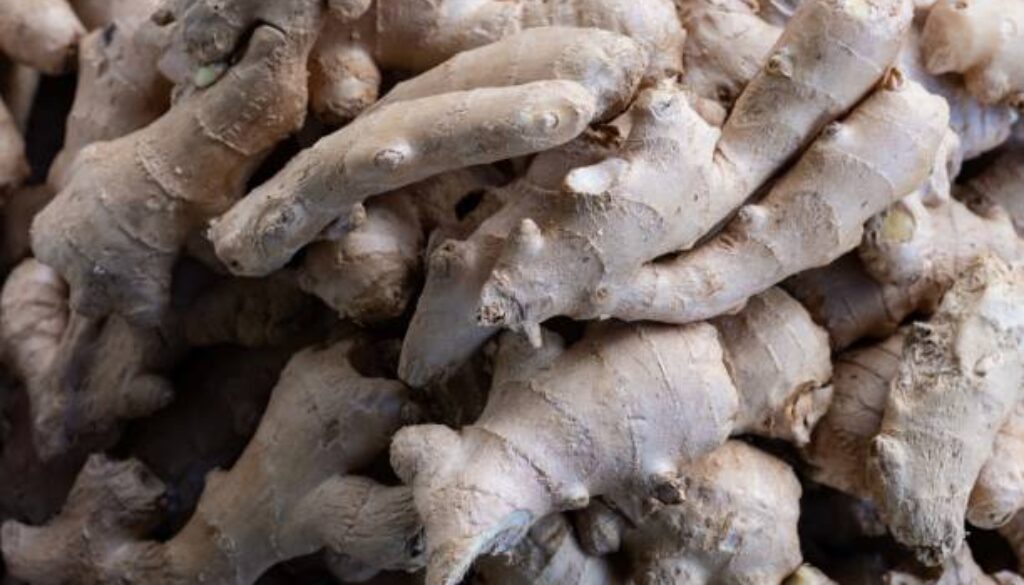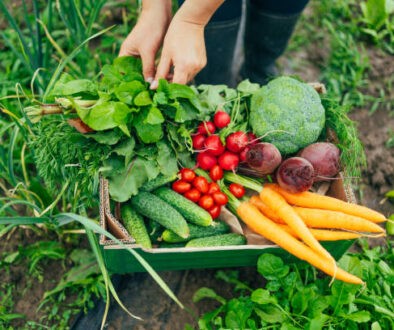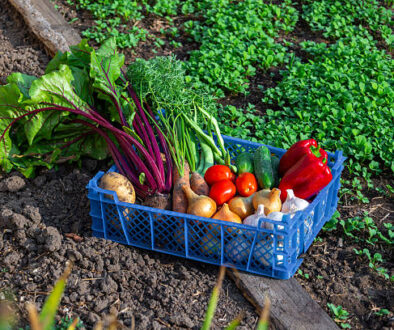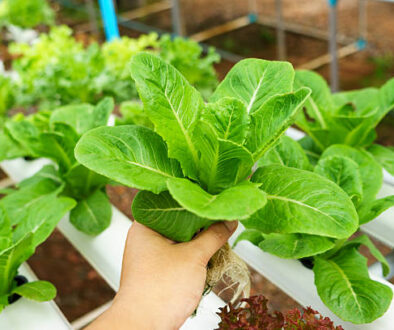Top 12 Favorite Medicinal Plants You Should Grow In Your Backyard: Herbs For Medicine
Quick Disclaimer: This post may contain affiliate links, meaning if you purchase a product through those links, I may receive a small commission with no extra cost to you. Thanks for your support to my work! I only Recommend Products I Trust!
MoreWhether you want to focus on plant-based medicine for common colds or simple first-aid remedies, there are so many medicinal herbs to grow that can make your backyard both beautiful and incredibly useful.
Related:
- Top 10 Medicinal Herbs and Healing Plants with Their Benefits and Growing Tips
- The 7 Most Crucial Culinary and Medicinal Herbs You Should Grow in Your Backyard
- 15 Magical Medicinal Herbs for the Summer & Spring
1. Aloe Vera – A Must-Have Medicinal Herb
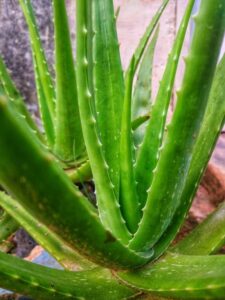
Aloe vera tops almost every list of plants for medicine because of its many uses.
The gel inside its thick leaves works wonders for sunburns, cuts, and dry skin.
You can also use it in hair masks or as a mild moisturizer.
For a quick remedy, just break a leaf, scoop out the gel, and apply it directly where you need relief.
💡Quick Note: Learn How To Transform A Typical Money-Draining House Into A Tiny Profitable Off-The-Grid Homestead. Click Here To Get Started Now!
It’s easy to grow and thrives in pots, sunny windows, or directly in the garden.
Aside from skin care, aloe vera also plays a role in plant-based medicine for digestion.
Small amounts of the inner gel can be added to smoothies to help soothe the stomach.
Just be sure to avoid the yellow latex under the skin, as it can cause discomfort.
This hardy plant is low-maintenance, making it a top choice for anyone looking to grow simple medicine herbs at home.
2. Peppermint – The Fresh Breath and Stomach Aid
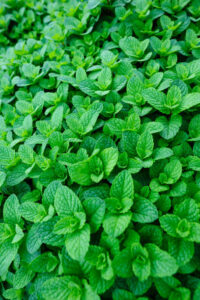
Peppermint is one of those medicinal plants and herbs that’s both practical and refreshing.
Its cool, crisp leaves can be brewed into tea to ease indigestion, bloating, and nausea.
Many people also keep peppermint oil handy for headaches; just a whiff or a small dab (diluted) on the temples can bring relief.
It’s also an easy grower, which makes it perfect for beginner gardeners looking for medicinal herbs to grow without too much fuss.
Peppermint spreads quickly, so it’s best to keep it in a container to control its growth.
Whether you’re sipping tea on a cool night or adding fresh leaves to desserts, peppermint deserves a place in every medicinal herb collection.
3. Chamomile – The Relaxation Plant
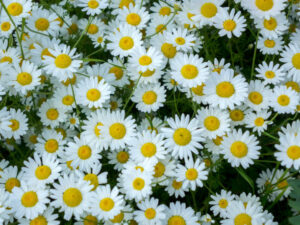
Chamomile is one of the best-known herbs for medicine when it comes to calming the body and mind.
A warm cup of chamomile tea before bed can help with sleep and reduce stress.
💡Quick Note: 🌼Don’t You Dare To Miss Out On This Kit! The Medicinal Garden Kit is a Must-Have for Your Garden. Click Here to Access Now!
Its daisy-like flowers also make a gentle remedy for upset stomachs and mild skin irritations.
Growing chamomile is simple, and it rewards you with cheerful blooms for months.
Drying the flowers means you can enjoy your own plant-based medicine year-round.
Plus, it attracts pollinators to your garden, which is always a bonus when you’re cultivating a variety of medicinal herbs to grow.
4. Lavender – Calm in a Plant
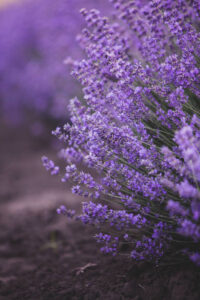
Lavender is famous for its soothing scent and ability to help with relaxation and anxiety.
A few sprigs under your pillow or drops of lavender oil in a diffuser can work wonders for better sleep.
It’s also a natural insect repellent and can be used in skin care for its antibacterial properties.
Lavender thrives in sunny, well-drained areas and, once established, it’s tough and low-maintenance.
For a medicinal herb that’s beautiful, fragrant, and practical, lavender is hard to beat. You can use the flowers in teas, sachets, or homemade balms, making it a versatile part of your herbs medicine collection.
5. Basil – Flavor Meets Healing
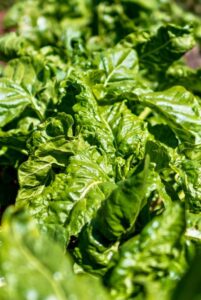
Basil isn’t just for pasta—it’s also a powerful plant for medicine with antibacterial and anti-inflammatory benefits.
It’s been used traditionally to help with colds, coughs, and even mild infections.
A fresh basil tea can help clear the head and soothe the throat.
Growing basil is easy; it thrives in warm weather and grows fast from seed.
Keep picking the leaves to encourage more growth.
In addition to cooking, basil can be infused into oils for topical use, making it one of the most useful medicinal herbs to grow.
6. Ginger – The Warming Root
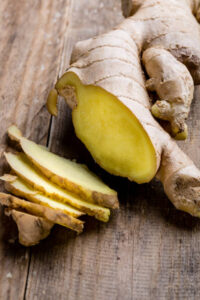
Ginger is a staple in plant-based medicine for its anti-inflammatory, immune-boosting, and digestive benefits.
Fresh ginger tea is excellent for colds, sore throats, and nausea.
It’s also widely used in cooking for its distinct flavor and health benefits.
💡Quick Note: Learn How To Transform A Typical Money-Draining House Into A Tiny Profitable Off-The-Grid Homestead. Click Here To Get Started Now!
Planting ginger is straightforward. Just place a fresh root in moist, well-drained soil, and it will sprout over time.
It prefers warm, shaded areas, making it a great choice for backyard gardeners looking to expand their medicine herbs variety.
7. Calendula – The Skin Repair Specialist
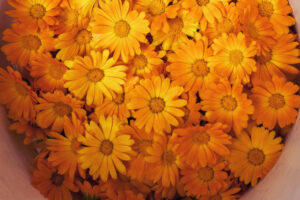
Calendula’s bright orange and yellow blooms are as healing as they are beautiful.
This medicinal herb is widely used in salves, balms, and creams for cuts, scrapes, and rashes.
Its petals also make a mild tea for internal healing.
It’s easy to grow and loves sunny spots. Harvesting the flowers regularly will keep them blooming.
Calendula’s antibacterial and anti-inflammatory qualities make it a valuable addition to your herbs medicine toolkit.
8. Rosemary – The Memory Booster
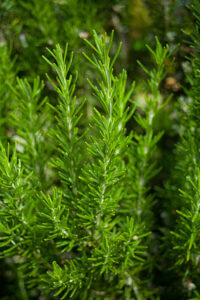
Rosemary is a fragrant herb that supports memory, circulation, and digestion.
Drinking rosemary tea can help with focus, while inhaling its scent can boost alertness.
It’s drought-tolerant and grows well in sunny areas, making it perfect for low-maintenance gardens.
Rosemary’s strong flavor also makes it a popular cooking herb, meaning your medicinal plants and herbs can double as kitchen staples.
9. Echinacea – The Immune Strengthener
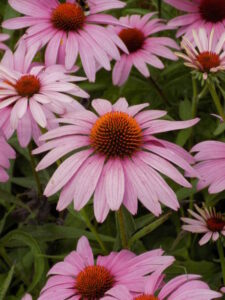
Echinacea’s bold purple flowers are more than just pretty; they’re powerful for supporting the immune system.
Many people take echinacea tea or tinctures at the first sign of a cold.
It’s easy to grow, even in poor soil, and it attracts pollinators.
For gardeners wanting long-lasting medicinal herbs to grow, echinacea is a solid choice for year-round health support.
10. Thyme – The Antibacterial Herb
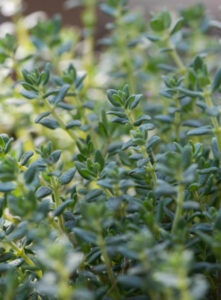
Thyme is packed with antibacterial and antifungal properties, making it a great herb for medicine.
It’s often used to treat coughs and respiratory issues.
Thyme thrives in sunny areas and poor soil, so it’s low-maintenance.
It also works well in cooking, meaning you get double the benefits from one medicinal herb.
11. Lemon Balm – The Gentle Calmer
Lemon balm’s citrusy scent is uplifting and calming at the same time.
It’s a gentle herb for easing anxiety, improving sleep, and soothing digestion.
It grows quickly and can spread easily, so it’s best planted in a pot.
Fresh leaves make a refreshing tea, adding a pleasant flavor to your plants for medicine collection.
12. Sage – The All-Purpose Healer
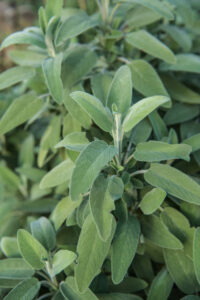
Sage has been used for centuries as both a medicinal herb and a cooking spice. It supports digestion, relieves sore throats, and has antibacterial qualities.
💡Quick Note:💚Love Gardening? You’ll love this Kit! The Medicinal Garden Kit is a Must-Have for Every Gardener. Click Here to Access Now!
It’s hardy and grows well in various climates. With its silvery leaves and strong aroma, sage adds beauty and health benefits to any medicine herbs garden.
Conclusion
Growing your own medicinal plants and herbs means you have fresh, natural remedies just steps away.
From soothing teas to healing balms, these herbs for medicine offer countless benefits.
Whether you start with one or grow all twelve, you’ll enjoy the satisfaction of having your own supply of plant-based medicine right in your backyard.
FAQs
- Which medicinal plant is the easiest to grow?
Basil and peppermint are great starters—they grow quickly and don’t need much attention. - Can I grow these plants in pots?
Yes, most medicinal herbs to grow can thrive in containers with proper sunlight and watering. - How do I learn more about herbs uses?
Read trusted herbal guides, join gardening groups, or take a class on herbs medicine to expand your knowledge. - Do these plants work as well as store-bought remedies?
For mild issues, many plants for medicine are just as effective. But for serious conditions, always consult a healthcare professional.
